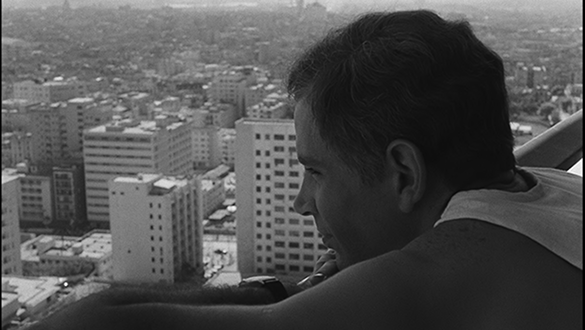
The film boldly blends the personal and the political, fiction and documentary, in the context of the rift of the Cuban Revolution with the USA, in 1962, a year before the Bay of Pigs Invasion. Based on a novel by co-writer Edmundo Desnoes, Sergio, a privileged petty bourgeois intellectual, chooses to stay in Cuba and document the cosmogenic changes in a novel. Wandering in the bustling Havana, nor does he participate neither denies the social becoming. “I try to live like a European and that leads me to underdevelopment” he says at one point in the film. Gutiérrez Alea, with obvious influences from Godard, contemplates without demagoguery the revolution in Cuba through this passive anti-hero.
Τomás Gutiérrez Alea (1928- 1996) was Cuba's greatest and best-known director. After studying law in Cuba, he studied filmmaking in Rome. A supporter of Fidel Castro, he helped develop Cuba’s film industry after 1959 and made the communist regime’s first official feature film, Stories of the Revolution (1960). Later he worked within the restrictions of the regime to satirize and explore various aspects of life in postrevolutionary Cuba in such internationally acclaimed films as Death of a bureaucrat (1966), The survivors (1979), and Strawberry and chocolate (1993).



